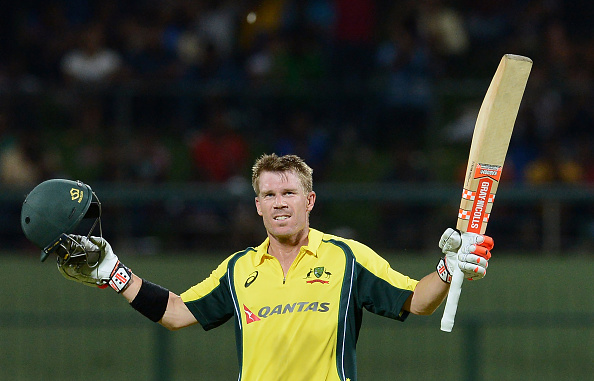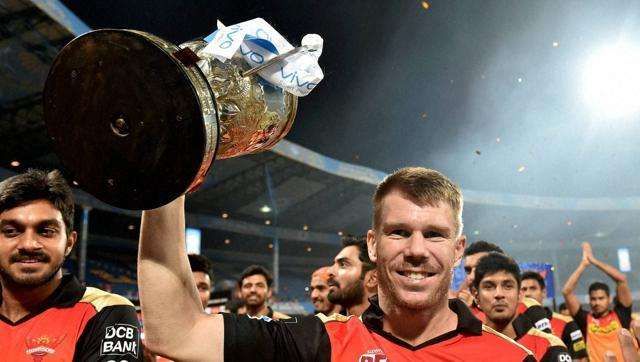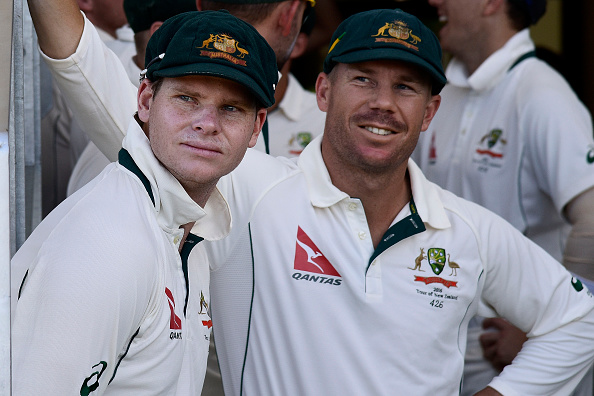
Is David Warner the captain that Australia really needs?

“A captain is as good as his team” – is an old cricketing adage that we have heard many times from commentators, even from captains themselves. But what does this really mean? Does this mean that anyone can captain a team that is full of supremely talented cricketers, or can a creative and intelligent captain lead a team of mediocre cricketers to win?
Perhaps both these assessments are true in some way or the other, but what if the same team is captained by two different cricketers and produce contrasting results? Can it be said then that the captain had a role in changing the way the team played and its fortunes?
The Australia-Sri Lanka series from July to September this year gave us an example. Steven Smith captained Australia in 3 tests and 2 ODIs, and lost all but one match, which was an ODI. He then left the tour mid-way to get some rest before the long home season and David Warner took over the captaincy. Under him, Australia, who had looked battered and bruised till then, won 3 ODIs and 2 T20Is on the trot.
Steven Smith’s captaincy in Sri Lanka 2016:
| Matches | Won | Lost | Drawn | Win % |
| 5 | 1 | 4 | 0 | 20 |
David Warner’s captaincy in Sri Lanka 2016:
| Matches | Won | Lost | Drawn | Win % |
| 5 | 5 | 0 | 0 | 100 |
While we are only comparing 5 matches and also across formats, the difference in the results produced by the two captains is striking.
There has been talk for some time now among fans and commentators that Steven Smith’s captaincy is not producing the results we usually tend to expect from an Australian team. It might be due to many reasons:
- # A defensive approach to captaincy
- # Lack of creative ideas like Michael Clarke’s
- # Not a lot of support in terms of ideas from other players in the team
- # A not-so-good set of players at his disposal
- # A combination of all of the above factors
Whatever the exact reasons might be, it is evident that the results he has produced as captain haven’t been great. Let’s see this in numbers below:
| Matches | Won | Lost | Drawn | No Result | Win % |
| 52 | 27 | 20 | 4 | 1 | 51.92 |
To break it down format-wise:
Tests:
| Matches | Won | Lost | Drawn | No Result | Win % |
| 14 | 7 | 3 | 4 | 0 | 50.00 |
ODIs:
| Matches | Won | Lost | Drawn | No Result | Win % |
| 30 | 16 | 13 | 0 | 1 | 53.33 |
T20Is:
| Matches | Won | Lost | Drawn | No Result | Win % |
| 8 | 4 | 4 | 0 | 0 | 50.00 |
As can be clearly seen from the stats above, the Test match numbers for Smith aren’t too bad, but his limited overs stats are not remarkable by any means. In both limited overs formats, he has won just half the matches he has captained in.
His stats as a batsman are very impressive as a captain though:
Tests:
| Matches | Innings | Runs | Average | 50s | 100s |
| 14 | 24 | 1559 | 74.23 | 6 | 7 |
ODIs:
| Matches | Innings | Runs | Average | 50s | 100s |
| 30 | 29 | 1197 | 46.03 | 7 | 3 |
T20Is:
| Matches | Innings | Runs | Average | 50s | 100s |
| 8 | 8 | 242 | 34.57 | 2 | 0 |
While his own numbers as a batsman are quite brilliant when he is the team’s captain, it’s apparent that he hasn’t been able to inspire others to produce the goods as the overall stats tell us that the results have been middling at best.
A quick glance at David Warner’s stats, and we see how he has taken his team(s) to greater success since taking over the captain’s mantle for a brief period. Warner’s international captaincy experience has been limited so far, and the 5 matches mentioned above in this article are the only ones he has captained his country in.
A result of 5 wins out of 5 matches on a tour where the team had lost 4 out of 5 before his stint began, and quite comprehensively at that, clearly tells what an immediate positive impact his leadership had on the team’s style of thinking.
Warner’s IPL success as captain
A more accurate analysis of Warner’s captaincy and its impact can be done by taking into account the success of the IPL franchise Sunrisers Hyderabad under his leadership in the ninth edition of the IPL earlier this year.
He led the team to 8 wins out of 14 matches to finish third on the points table and make it to the playoffs, but since they didn’t finish in the top 2, it meant that to lift the trophy, they had to win 3 knockout matches on the trot. Warner’s leadership inspired them to do the unthinkable.

The Australian brilliantly he responded to the additional pressure of captaincy and also led from the front as the team’s go-to batsman, ending the tournament as the second highest run getter, only behind Virat Kohli. These were his numbers:
| Matches | Innings | Runs | Average | Strike Rate | Fours | Sixes |
| 17 | 17 | 848 | 60.57 | 151.43 | 88 | 31 |
In the second qualifier and the final, he took the team home scoring 93 off 58 balls against the Gujarat Lions and 69 off 38 against the Royal Challengers Bangalore, respectively.
He was the only foreign captain out of 8 teams in the league (Kings XI Punjab started with David Miller as captain but handed it over to Murali Vijay mid-way through) and led his team to its first IPL title.
The Australian took the responsibility of fielding at the busiest boundary positions in tense situations, making courageous bowling and team changes, remaining calm under pressure and above all, scoring runs whenever it mattered and showed that he took to captaincy like a fish to water.
The argument for Warner to take over as captain
It is not inaccurate to say that Australia right now are a team in transition. They are not even close to being the world-beater Australian team under the leadership of Mark Taylor, followed by that of Steve Waugh and Ricky Ponting, where they scaled unprecedented heights of success.
Even their bench strength, which traditionally has been the strongest of all teams in the world, looks a little feeble as was seen in their recently concluded one-day series in South Africa. They had rested their key bowlers and some were out injured, and the second string attack couldn’t control the rampaging South African batsmen in any match. The result –a 5-0 whitewash, which was the first in their one-day cricketing history.
Captain Steven Smith looked lost for ideas when his young pacers were getting smashed around. In the first match of the series that set the tone, the Proteas chased down 296 in just 36 overs!
David Warner, by contrast, has displayed a propensity for being smart and innovative under such conditions. He promoted Glenn Maxwell to the opening slot in the T20Is against Sri Lanka and the result was 211 runs off just 94 deliveries with 21 fours and 13 sixes in 2 matches; and 2 easy Australian victories.

He reposed faith in Ben Cutting and played him as one of the 4 overseas players from among a host of international stars in the IPL final, and he responded magnificently with both bat and ball to help clinch the title for his team, and winning the man of the match award.
Such examples show how this man is absolutely ready to take over the leadership mantle from Steven Smith. Smith’s batting is critical to Australia’s fortunes in all formats, and to be fair, he hasn’t done badly either as a captain-batsman, but if his performances and captaincy aren’t proving inspirational enough to produce the right results for his team, maybe it’s time the selectors invest in David Warner as the captain.
Warner can be made the ODI and T20I skipper and when he produces results, can take over the role seamlessly in all 3 formats. To get back to winning ways in international cricket and to take rapid strides towards establishing their domination in world cricket again, the Australian team needs a sound leader, and it won’t be incorrect to say that Warner’s captaincy is just what they need right now, as he seems to be the perfect man to lead them going forward.
Controlled aggression with maturity, and leading by example when the going gets tough are the traits that a good captain needs to possess, and Warner seems to have them in abundance.